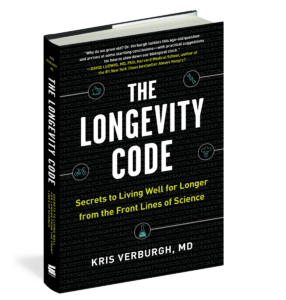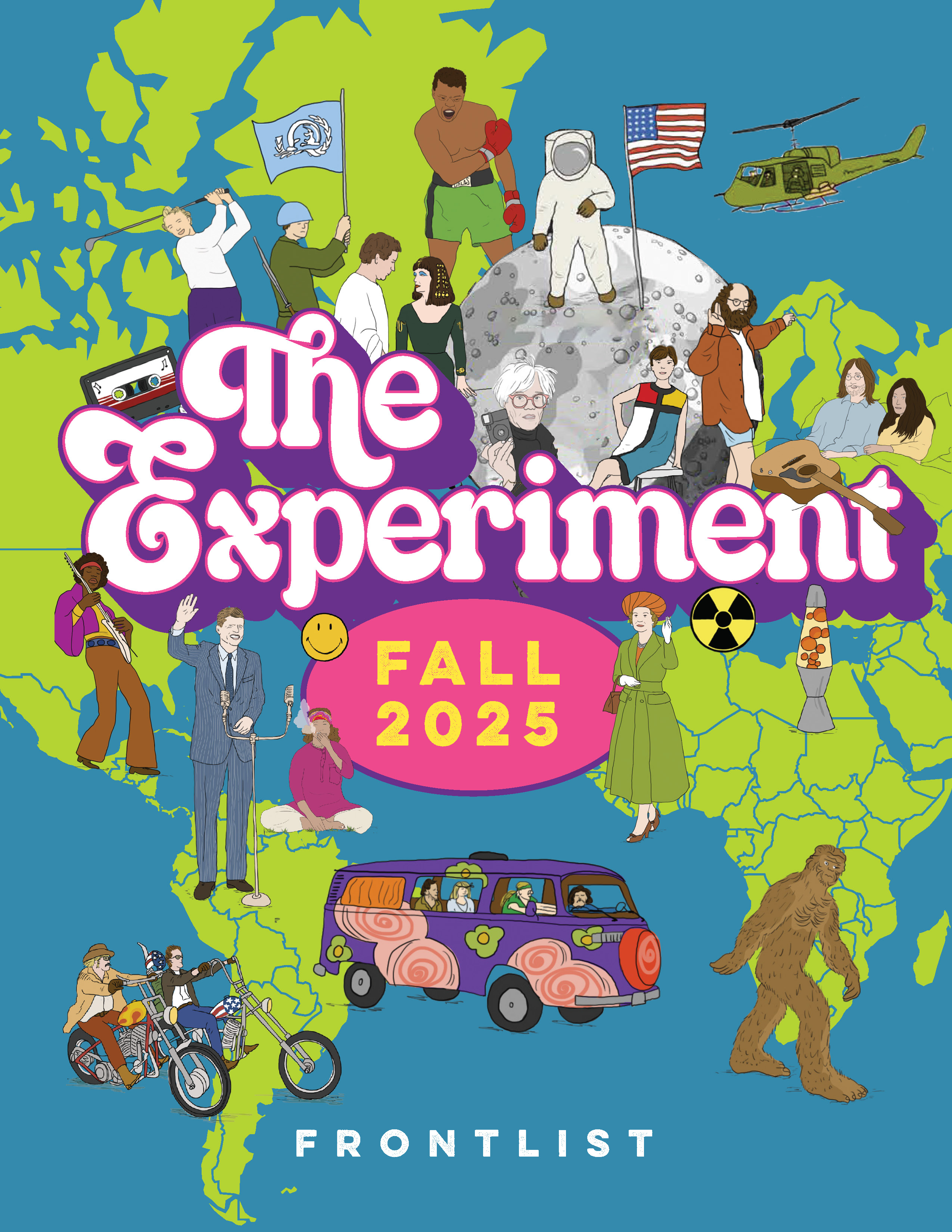There are many variations on the phrase that life is a game nobody survives. Perhaps most simply, Jim Morrison sang, “No one here gets out alive.” We all understand and accept, to varying degrees, that aging and death are inevitable. We are encouraged to live fully–to eat well, drink well, squeeze the most out of every day–because we are going to die anyway.
In his new book, The Longevity Code: Secrets to Living Well for Longer from the Front Lines of Science, author Kris Verburgh argues that we have more control over death than we think. Verburgh is a researcher at the Center Leo Apostel for Interdisciplinary Studies at the Free University Brussels and is on the faculty of Singularity University, a Silicon Valley think tank devoted to tackling the world’s biggest challenges with emerging technology. He researches interventions that can extend healthy life span and combat aging-related diseases through nutrition and state-of-the-art biotechnology. In doing so, he has established a new scientific discipline, nutrigerontology, which researches diets and guidelines to slow down aging and reduce the risk of aging-related diseases.
 With The Longevity Code, he lays it all out on the table. The book breaks down why we age, what puts us at risk for aging-related diseases–and then he explains how we can slow those processes down and live well for longer. Perhaps even long enough to benefit from on-the-horizon advances in biotechnology that could extend life longer than any of us would imagine possible (1,000th birthday party anyone?).
With The Longevity Code, he lays it all out on the table. The book breaks down why we age, what puts us at risk for aging-related diseases–and then he explains how we can slow those processes down and live well for longer. Perhaps even long enough to benefit from on-the-horizon advances in biotechnology that could extend life longer than any of us would imagine possible (1,000th birthday party anyone?).
In the following excerpt, Verburgh discusses how poorly we are utilizing the most important tool we currently have against aging: our diets. There is also a recipe for Almond Pancakes with Blueberries from the book that adheres to the dietary guidelines of nutrigerontology (and they’re no Mrs. Butterworth’s pancakes).
Read the excerpt below and for all of Verburgh’s age-defying know-how, check out The Longevity Code–available now wherever books are sold.
According to Professor Lieberman, not only older people but increasingly more young people and children are suffering from these civilization diseases. These include flat feet, back problems, gastric reflux, depression, asthma, inflammatory intestinal diseases (Crohn’s disease, ulcerative colitis), insomnia, gout, irritable bowel syndrome, hammertoes, lactose intolerance, malocclusion, and impacted wisdom teeth. We consider these diseases almost normal because they are so common, but in the past, before the industrialization of our food, and even earlier, before the development of agriculture, they were not so common. A good example is tooth problems, such as impacted wisdom teeth and malocclusion (the upper teeth do not fit well on the lower teeth). Many young people get braces to correct this or they may have to have their wisdom teeth pulled because they do not have enough room to grow. We consider this normal, but in prehistoric times this would not have been possible. Then, an impacted wisdom tooth would have been a death sentence. Problems with wisdom teeth and malocclusion were very rare in those days. So why are today so many braces placed and wisdom teeth pulled? This is because the jawbone of children develops abnormally. It is the result of eating too much soft foods with not enough fiber. White bread with jam, cookies, and sugary breakfast cereals do not require much chewing, so that the jaw bones cannot develop properly—resulting in a lot of work for dentists, orthodontists, and dental surgeons.
In any case, all these civilization and aging diseases, which affect both young and old, are not an elegant way to grow old. Ideally, older people should be independent and healthy for almost their entire life and die after a brief period of dependence and illness—usually less than one or two years. Not only do people become chronically ill much earlier but in some areas the life span is decreasing, for the first time in centuries. Studies show that in some regions in the United States children will have a shorter life expectancy than their parents do. It is not surprising that this happens in the United States, a country with one of the worst dietary patterns in the world.
In other words, the argument that our unhealthy diet is not terribly important because life expectancy has always been increasing does not hold water. We live longer but we are also sick longer, particularly people with an unhealthy lifestyle.
3/4 cup (100 g) almond meal
1 tablespoon coconut flour
3 large eggs
Scant 1/4 cup (50 ml) water
1/3 cup (75 ml) prune juice
1/4 teaspoon ground nutmeg
Olive oil, for the skillet
1 1/3 cups (200 g) blueberries, for serving
Stevia or erythritol powder, for serving
Place the almond meal, coconut flour, eggs, and water in a mixing bowl and whisk to make a smooth batter (so that there are no clumps left). Mix in the prune juice and nutmeg. Set aside for a few minutes. Heat a nonstick skillet over medium heat until hot. Add a little oil and then 1 tablespoon of the batter to make a little pancake. Cook for 1 minute, then flip the pancake over and cook the other side for 1 to 2 minutes. Repeat to make additional pancakes. Serve with blueberries and stevia.


